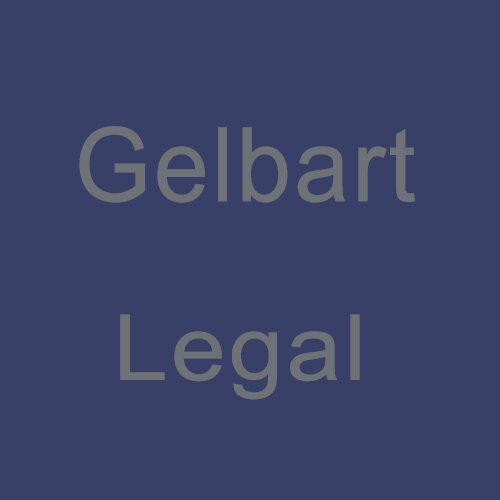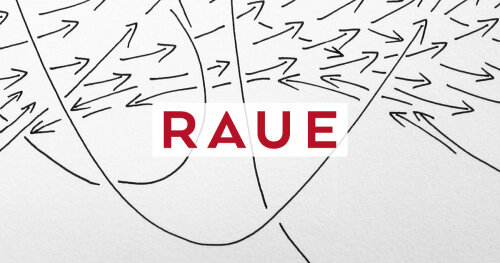Best Energy Regulatory Law Lawyers in Berlin
Share your needs with us, get contacted by law firms.
Free. Takes 2 min.
List of the best lawyers in Berlin, Germany
About Energy Regulatory Law in Berlin, Germany
Energy Regulatory Law in Berlin, Germany, governs the production, distribution, consumption, and regulation of energy resources such as electricity, natural gas, and renewable energy. This area of law ensures a reliable, fair, and environmentally responsible energy supply in alignment with both national and European Union objectives. The laws regulate energy markets, set standards for market participants, manage tariffs, guarantee consumer protection, and promote the transition to renewable energy sources. In Berlin, specific regulations also intersect with climate policy and urban development initiatives, making compliance complex but essential for energy providers, consumers, and investors.
Why You May Need a Lawyer
There are many situations where individuals or businesses in Berlin may require legal assistance in Energy Regulatory Law. These include navigating approval processes for new energy projects, challenging or understanding energy tariffs, handling disputes with suppliers or grid operators, drafting contracts for energy purchase or supply, addressing grid access issues, and complying with new renewable energy incentives or climate regulations. A lawyer can also help represent clients in administrative or civil proceedings related to energy law violations, and ensure that their interests are protected in the rapidly evolving regulatory environment.
Local Laws Overview
The legal framework for energy regulation in Berlin is shaped by a combination of federal German law, European Union directives, and local Berlin statutes. Key national laws include the EnWG (Energy Industry Act), EEG (Renewable Energy Sources Act), and KWKG (Combined Heat and Power Act). These establish rules for grid access, unbundling of energy supply, consumer protection, energy generation from renewable sources, and market competition. In Berlin, local initiatives focus on integrating more renewables, enhancing energy efficiency in buildings, and achieving ambitious carbon reduction targets. The Berlin Energy Turnaround Act (Berliner Energiewendegesetz) is especially significant for stakeholders looking to participate in, or comply with, Berlin's climate and energy transition policies.
Frequently Asked Questions
What is Energy Regulatory Law?
Energy Regulatory Law encompasses all legal rules related to the generation, distribution, and consumption of energy, with the goal of ensuring safe, reliable, and competitive energy markets.
Who regulates energy markets in Berlin?
Energy markets in Berlin are regulated by the Federal Network Agency (Bundesnetzagentur) and by the local regulatory authority Landesregulierungsbehörde Berlin, in accordance with EU, federal, and state laws.
Do energy providers in Berlin need a license to operate?
Yes, energy providers and grid operators generally require licenses or registrations to operate under the Energy Industry Act (EnWG) and are subject to ongoing regulatory oversight.
What rights do consumers have in the energy market?
Consumers are protected by strict rules ensuring fair competition, transparent pricing, the right to change suppliers, and protections against unfair contract terms or billing practices.
How are renewable energy projects regulated?
Renewable energy projects must comply with the Renewable Energy Sources Act (EEG) and may be eligible for specific subsidies or feed-in tariffs. Local planning and environmental laws also apply.
What are the main challenges for businesses regarding energy compliance?
Businesses face challenges such as meeting emission targets, understanding tariff systems, securing grid access, and navigating administrative procedures for energy projects or renovations.
How can property owners take part in Berlin's energy transition?
Property owners can invest in rooftop solar installations, participate in energy cooperatives, or upgrade their buildings' energy efficiency, often with support from local or federal incentive programs.
Are there penalties for violating energy regulations?
Yes, violations such as unauthorized supply, regulatory non-compliance, or market manipulation can result in fines, withdrawal of licenses, or other sanctions.
How does Berlin's Energiewende affect local businesses?
Berlin's energy transition policies can require businesses to adapt operations, invest in efficiency, or comply with stricter emission rules, but they may also offer new opportunities for sustainable innovation.
Where can I resolve disputes with my energy supplier?
Disputes can be addressed through specialized arbitration boards (Schlichtungsstellen), regulators, or, if necessary, through the civil courts with legal representation.
Additional Resources
Several organizations and agencies offer assistance in the field of Energy Regulatory Law in Berlin:
- Federal Network Agency (Bundesnetzagentur) - responsible for nationwide energy regulation and consumer protection
- Landesregulierungsbehörde Berlin - the local energy regulator for Berlin
- Berlin Energy Agency (Berliner Energieagentur) - provides advice on energy efficiency and local energy projects
- Consumer Advice Center Berlin (Verbraucherzentrale Berlin) - helps with energy contract advice and dispute resolution
- Chambers of Industry and Commerce (IHK Berlin) - offers support for businesses navigating regulatory requirements
Next Steps
If you require legal assistance in Energy Regulatory Law in Berlin, start by gathering all relevant documents such as contracts, correspondence, and regulatory notices. Clearly identify your issue or goal, whether it is negotiating a contract, resolving a dispute, or ensuring compliance with new regulations. Consult a lawyer specializing in energy law for an initial assessment. Most energy law specialists in Berlin offer consultations where you can outline your situation and receive guidance on the best course of action. Remember that prompt legal advice can prevent costly mistakes and help you take advantage of opportunities in Berlin's dynamic energy sector.
Lawzana helps you find the best lawyers and law firms in Berlin through a curated and pre-screened list of qualified legal professionals. Our platform offers rankings and detailed profiles of attorneys and law firms, allowing you to compare based on practice areas, including Energy Regulatory Law, experience, and client feedback.
Each profile includes a description of the firm's areas of practice, client reviews, team members and partners, year of establishment, spoken languages, office locations, contact information, social media presence, and any published articles or resources. Most firms on our platform speak English and are experienced in both local and international legal matters.
Get a quote from top-rated law firms in Berlin, Germany — quickly, securely, and without unnecessary hassle.
Disclaimer:
The information provided on this page is for general informational purposes only and does not constitute legal advice. While we strive to ensure the accuracy and relevance of the content, legal information may change over time, and interpretations of the law can vary. You should always consult with a qualified legal professional for advice specific to your situation.
We disclaim all liability for actions taken or not taken based on the content of this page. If you believe any information is incorrect or outdated, please contact us, and we will review and update it where appropriate.















